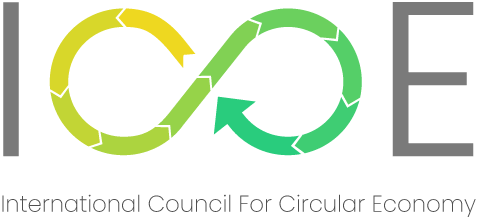State | Country: India
About Tilestic
Tilestic, a pioneering producer of eco-friendly building materials that transform single-use plastic waste into sustainable construction products. Its range includes interlocking tiles, paver tiles, and roof tiles designed to outperform traditional cement-based materials in strength, lifespan, and resilience.”
With a proprietary recycling process that utilizes even low-value, non-recyclable plastics, Tilestic merges environmental responsibility with economic viability. Beyond construction, Tilestic also supports marine ecosystem restoration by creating artificial coral reef-shaped structures from recycled plastics, reintroduced into the Mediterranean Sea to foster biodiversity.
The Problem
Two interconnected challenges define today’s sustainability crisis:
- 🗑️ Plastic Waste Pollution: Millions of tons of plastic waste end up in landfills and oceans annually, damaging ecosystems and human health.
- 🏗️ Carbon-Intensive Construction: Cement-based building materials significantly contribute to global carbon emissions and resource depletion.
Tilestic addresses both issues by transforming discarded plastics into durable, eco-friendly construction materials, reducing plastic pollution while lowering the carbon footprint of the building industry.
Circular Economy Alignment
Tilestic exemplifies circular economy principles by keeping waste in productive cycles and designing for longevity:
- Waste Reduction – Diverts single-use plastics, including low-value and non-recyclable waste, away from landfills and oceans.
- Resource Efficiency – Uses significantly less energy than cement production, lowering carbon emissions and conserving raw materials.
- Product Design for Longevity – Tiles and roofing products are built to last, resistant to wear, tear, and harsh weather conditions, reducing replacement frequency.
- Recycling & Reusability – Products are fully recyclable at end-of-life, ensuring closed-loop material cycles.
- Environmental Restoration – Coral reef structures made from recycled plastics restore marine ecosystems and enhance biodiversity.
Social Impact – Creates green jobs in waste collection, manufacturing, and ecosystem restoration, fostering inclusive and sustainable development.
Impact
🌍 Environmental Impact
- Diverted large volumes of single-use plastics from landfills and oceans.
- Reduced reliance on carbon-intensive cement materials.
- Lowered carbon footprint through energy-efficient recycling processes.
- Restored marine ecosystems with artificial coral reefs, supporting biodiversity in the Mediterranean Sea.
👥 Social Impact
- Generated employment in waste management, recycling, and product manufacturing.
- Created new livelihood opportunities in eco-construction and environmental restoration.
- Promoted sustainable living by offering affordable, durable, and environmentally friendly building alternatives.
🏗️ Industrial Impact
- Introduced innovative alternatives to conventional building materials.
- Demonstrated that low-value plastics can be upcycled into high-performance, commercially viable construction products.
Tilestic is redefining the construction industry by merging innovation with sustainability. By upcycling plastic waste into durable tiles and roofing materials, it not only diverts waste but also lowers emissions and resource use. Its marine restoration initiative further underscores its holistic approach to sustainability, proving that circular solutions can benefit both land and sea ecosystems.
Tilestic’s model shows how eco-friendly innovation can simultaneously address plastic pollution, climate change, and social development, setting a benchmark for green building practices worldwide.
Contact Information
Founder: Mohamed Hanfy Aboklela
Company: Tilestic
Address: 57, Corniche El Nile Street, Maady
Email: mohamedaboklela@gmail.com
Phone: +20 100 914 7988
Website: www.tilestic.com
